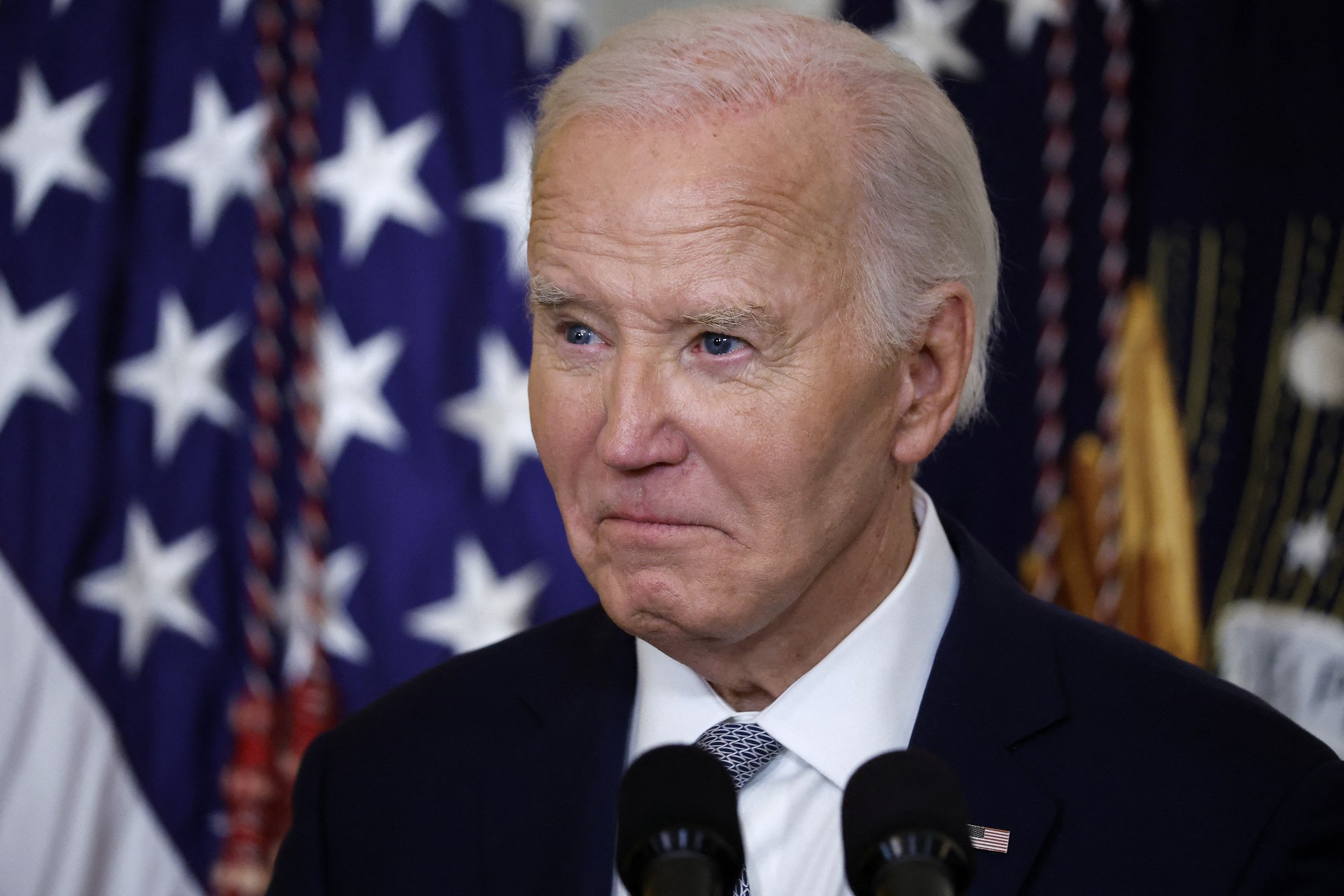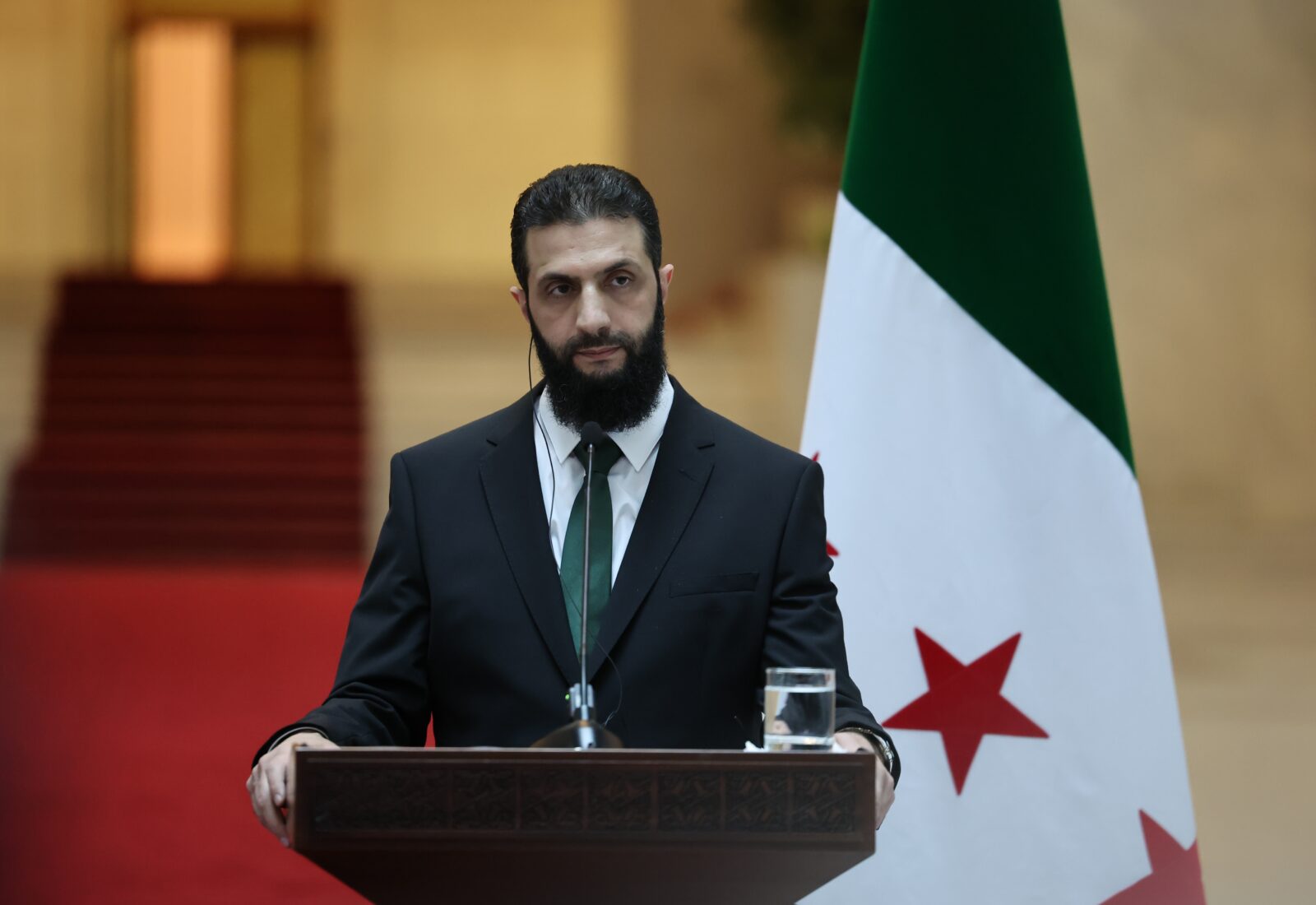US to ease humanitarian aid restrictions for Syria amid cautious sanctions approach
President Joe Biden speaks during a ceremony to award the Presidential Citizens Medal in the East Room of the White House on January 02, 2025 in Washington, DC. (AFP Photo)
January 06, 2025 11:42 AM GMT+03:00
The Biden administration is poised to ease restrictions on humanitarian aid to Syria, allowing for more rapid delivery of basic supplies without fully lifting sanctions on the new government in Damascus. according to WSJ
The limited step involves Treasury Department waivers for aid groups and companies offering essential services—such as water, electricity and other humanitarian supplies—but it falls short of a broader sanctions rollback.
Why it matters
Washington remains cautious about withdrawing the comprehensive sanctions imposed during Syria’s 13-year civil war, especially since the opposition-led government includes leaders once connected to militant factions.
The U.S. wants assurances that the new leadership in Damascus will protect the rights of women and religious or ethnic minorities. By granting only partial exemptions, U.S. officials seek to expedite humanitarian assistance while maintaining leverage over Syria’s political future.
Leader of new Syrian administration, Ahmed al Sharaa and Turkish Foreign Minister Hakan Fidan (not seen) hold a joint press conference after their meeting in Damascus, Syria on Dec.22, 2024. (AA Photo)US President Joe Biden speaks about a ceasefire between Israel and Hezbollah in Lebanon, in the Rose Garden of the White House in Washington, DC on November 26, 2024. (AFP Photo)
Details
- Initial six-month period: The waivers will allow aid suppliers to bypass individual approvals but come with conditions to ensure the assistance is not misused by Syrian authorities.
- Jawlani-led government: The leader of Hayat Tahrir al-Sham (HTS), Ahmed al-Sharaa, has tried to sever ties with al-Qaeda and present himself as more moderate. However, the U.S. previously labeled HTS as a terror group.
- Sanctions question: U.S. officials say decisions on lifting broader sanctions may be left to the incoming Trump administration. Europe also appears reluctant to lift sanctions, demanding a clear commitment to rights and freedoms from the new regime.
Zoom in
- Ongoing negotiations: Midlevel U.S. officials have met in Damascus with HTS leadership. European leaders like Germany’s Foreign Minister Annalena Baerbock have also visited, calling for inclusive governance while warning against creating “new structures for extremism.”
- Concerns over misuse: During the civil war, humanitarian aid was reportedly seized or exploited by Assad’s government. Observers note a need to ensure that aid does not become a revenue source for extremist factions within HTS.
Zoom out
With Syrian infrastructure devastated by years of war, international powers agree more aid is crucial. The partial easing of U.S. restrictions signals an attempt to balance humanitarian priorities against concerns about HTS’s background.
The broader question—whether to lift major sanctions and recognize the opposition-led government—will likely be decided under the incoming U.S. administration, reflecting global uncertainty about Syria’s political trajectory.
January 06, 2025 11:42 AM GMT+03:00

